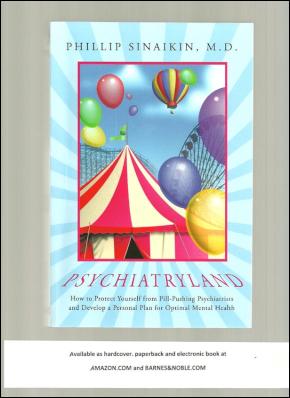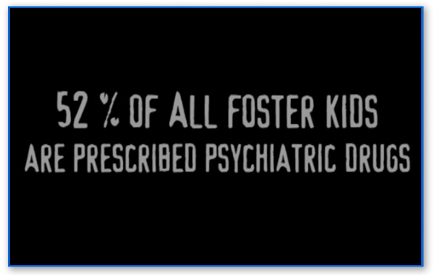
America conned: Psycho pharma drug pushing empire under fire
Is America truly stricken with widespread mental illness? Do tens of millions need mind-altering drugs? A recent flurry of media articles lead readers to a realization that Big Pharma and the “mental health” industry have deceived Americans on a grand scale.
The “New York Review of Books” two-part article by Dr. Marcia Angell, Senior Lecturer at Harvard Medical School and former Editor in Chief of The New England Journal of Medicine, summarizes it extremely well. She analyzes three books by authors Irving Kirsch, Robert Whitaker, and Daniel Carlat. Each deconstructs the apparent mental illness epidemic and theory that mental disorders stem from brain chemical imbalances which can be corrected by drugs.
Dr. Angell’s review has sparked a host of other journalists to applaud her and fuel the fire. An article in Forbes even concludes, “psychopharma is looking like an idea whose time has passed.”






SHARE YOUR STORY/COMMENT: